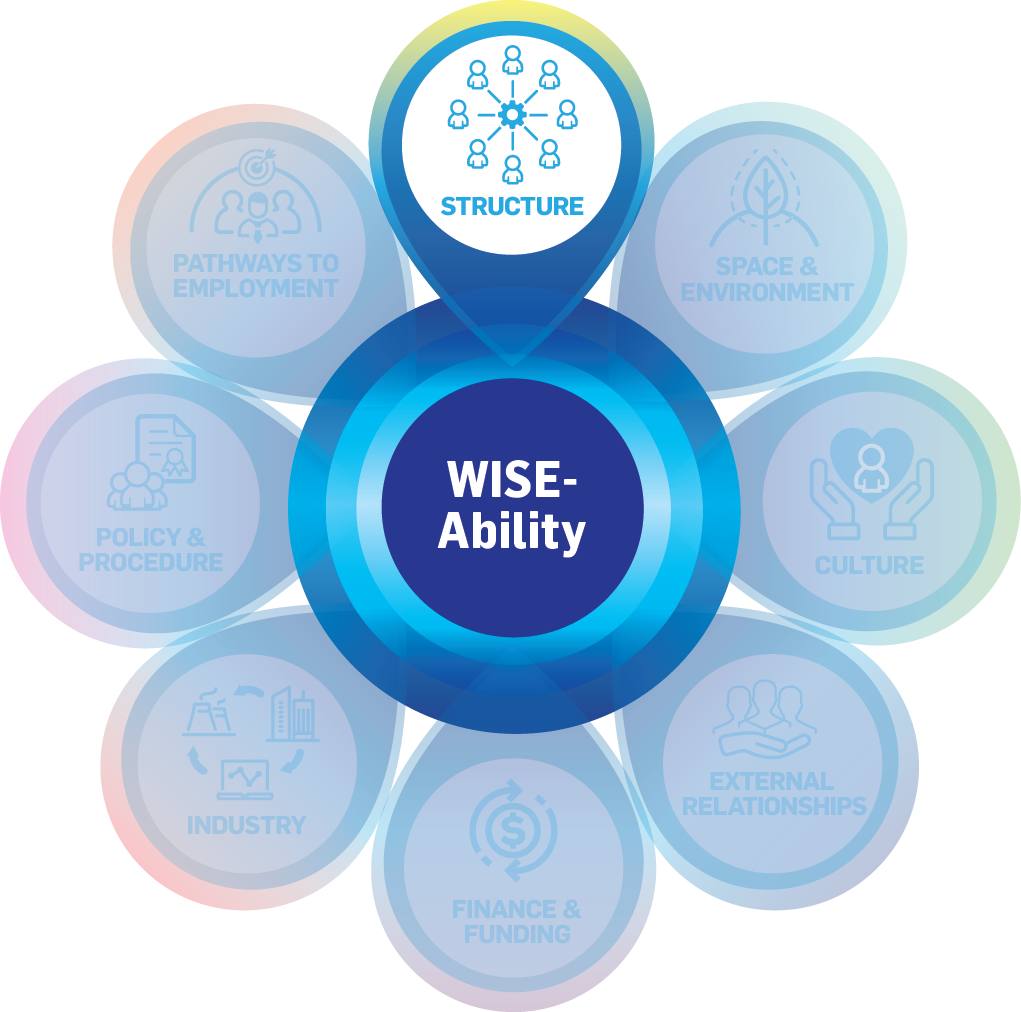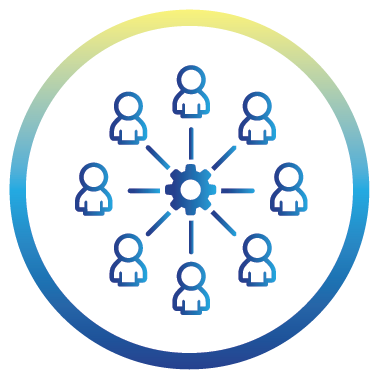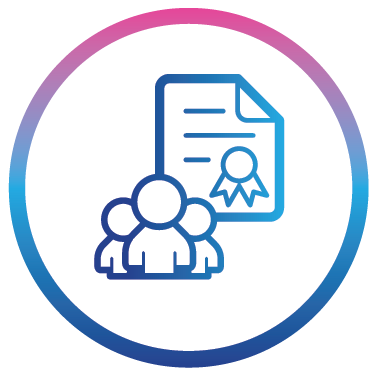Structure

Diverse work opportunities
Diverse work opportunities can be built into the DNA of the Disability Enterprise / WISE in the initial set up or by diversifying operations. Having different sites or spaces and offering different types of work means that there is variety and choice for individuals. This also provides varied social interactions, as well as skills development opportunities.
Work sites and spaces may all be under one roof or may be located at different premises.
It is important to enable people to access these different roles and workplaces through moving around or transferring across activities to acquire diverse experiences.
For many people with a disability, there are limited choices of where to work. Having different work choices, both within the WISE and in Open Employment, enables people to explore their interests and develop new skills. Having options for work and different workplaces enables people to match up their strengths and preferences with workplace or job role characteristics. For instance, a calm outdoor work environment might be preferred over a busy or social work environment. This also supports engagement through generating interest and providing challenges that avoid disengagement from long-term repetition.
Variety of work, balanced with lead-in time, allows individuals to prepare for change. Change may include different types of work, working with new people, and working with new equipment in different environments.
Wraparound supports team
Organisational structure includes the way staffing is structured, including having designated support staff or teams. Understanding each person and providing in-depth, tailored support is important. Support teams are private and respectful. They provide day-to-day guidance, mentoring, ensure work-life balance, and connect individuals and services outside of work to ensure wellbeing. If there are multiple sites within the WISE it is important that staff stay in communication with one another so that there is a common understanding of individual support requirements.
Tailored support means matching supports, environment and equipment to individual
requirements. A deep understanding of the individual means that Staff are able to pre-empt needs and challenges that may arise during training and the workday. Providing tailored support also means having an understanding of the support services they are connected to. This may include family and friends who play an important role in the support network.
Support Staff and Managers in contact roles can also act as mentors. These Staff roles involve answering questions, providing advice, ensuring Individuals take breaks and have access to food and water.
Individuals participate in a range of activities outside of work. A Support team can match workload commitments with external programs, duties and leisure networks. The right balance of working hours is required for personal health, social and recreational activity and professional productivity.
The Support team help to manage this balance. Staff create a healthy work life balance by ensuring the appropriate amount of work hours related to different needs and context such as young people transitioning from school to employment.
Support Staff provide assistance for individuals to travel to work safely whether by public transport, car or taxi. This may involve funding for travel (i.e. taxis) or marking out a safe, direct route to work. Travel to work can be a challenge if individuals do not have adequate support. In some cases, WISE staff are able to put supports in place that have no cost attached, like touch points along the journey including cafes with friendly staff who can provide a welcoming or safe environment.
Vocational training and development
Organisations need both formal and informal mechanisms for training development. Knowing that there are opportunities to learn on the job and that these opportunities will keep arising is a motivating factor. Certificates may be completed by some, however this type of learning does not suit everyone.
Having Supervisors and Mentors on-site supports learning and skills development. Learning experiences are supported by hands-on, structured, accessible, and tailored training
and learning activities. Progressing to different activities supports engagement and skill development. All training and work is underpinned by modified equipment, environments and tasks.
Hands-on learning involves learning how to do a job or task through practice and with support of a co-worker or Staff member. WISE use different ways of teaching new skills that suit their individual individuals. For example, using images rather than words, and having laminated lists of tasks in the workplace.
Recognised forms of training (i.e. Certified) can be tailored to each person. The trainer can take into consideration questions such as: ‘Does the person understand? Do I need to offer a different examples and ways of explaining this content?’ Use of verbal, printed words and images, prompts, and digital tools including video can assist.
Consider personal challenges and strengths when matching individuals to work and training. For instance, a social/team environment in a café can be a challenge for people who experience anxiety. Less socially interactive work can be an alternative. Some WISE have programs that are designed to build on technical strengths of clients such as computing or gaming skills.
Work tasks can be modified by the on-site support team on a daily basis to ensure good work experiences. Modifying workplaces can be straightforward, such as ensuring access to the right equipment, or the use checklists to guide workdays. Modifications are guided by deep understanding of individual needs.
Skills sets are strengthened via short courses, work and meetings (i.e. Individual Toolkit meeting), which also assist in preparing Individuals for Open Employment.
Individuals are empowered and prepared for Open Employment via real workplace conditions. Individuals are included in decision making processes and management meetings, participate in Work Health and Safety training, and everyday work participation is aligned with organisational policy and practices.








